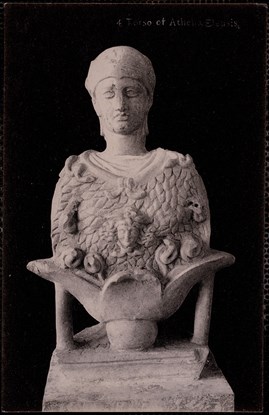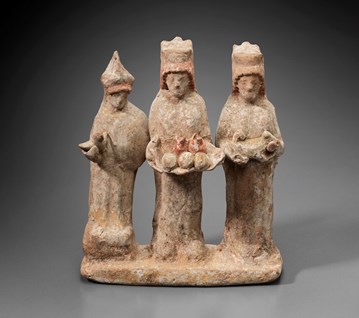Athena
Athena (or Pallas) was the goddess of wisdom, war, and various crafts. In the Homeric Hymn to Demeter, she accompanied Persephone as she played in a lovely meadow with the Oceanids and Artemis. Athena is called “she who rouses battles”, and she was gathering sweet flowers (crocuses, irises, hyacinths, rose-blooms, and lilies) when Hades appeared and seized Persephone. According to the Greek historian Diodorus Siculus, Persephone, Artemis, and Athena had made the same choice to remain maidens. They spent a lot of time on the island of Sicily, which they loved more than any other place. Each goddess had received a portion of the island as their particular territory, with Athena taking the region of Himera. The Roman poet Valerius Flaccus claimed that the three goddesses were dancing over Mount Hymettus' flowery ridges or beneath the cliffs of Sicily. Persephone was taller than her companions and more beautiful. Unfortunately, Athena could not assist Kore in her hour of need, and her role in the Eleusinian drama ended prematurely in that faraway field.

Torso of Athena, Eleusis, 1907-1915, photograph, Boston Public Library © Boston Public Library

Group statuette with Athena, Demeter, and Persephone, 450 BCE, sculpture, Boston Museum of Fine Arts © Boston Museum of Fine Arts






